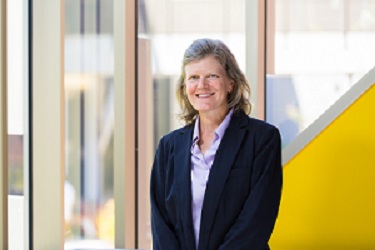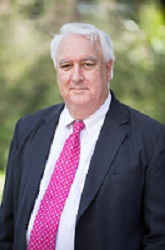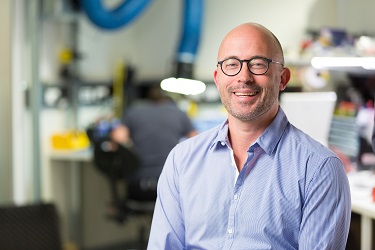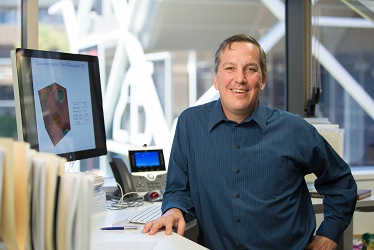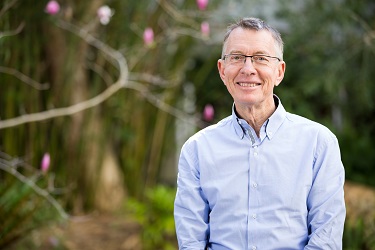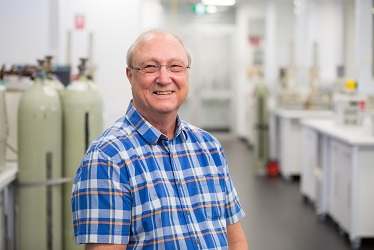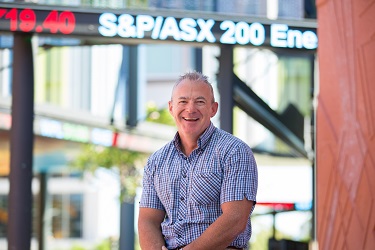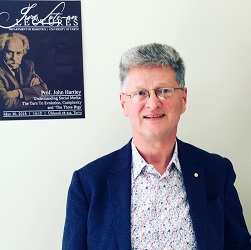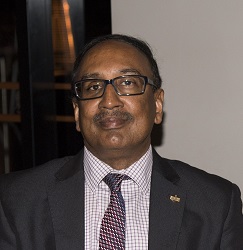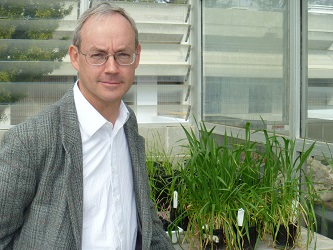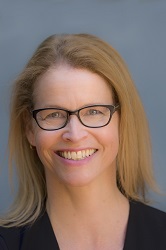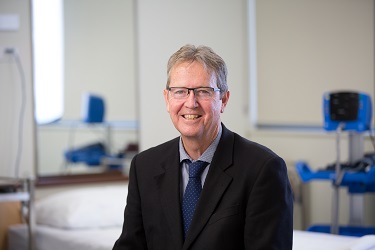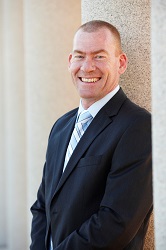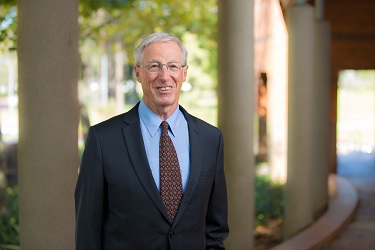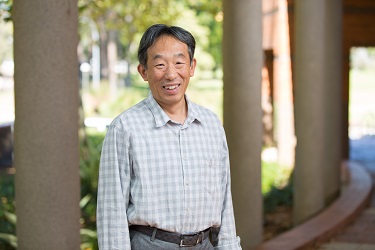2017 John Curtin Distinguished Professors
The Title 'John Curtin Distinguished Professor' is awarded for 5 years, or until the retirement or resignation of the Professor from the University, whichever comes first. The title may be awarded for consecutive periods.
2017 John Curtin Distinguished Professors
|
Professor Teri Balser As a soil scientist, she focuses on microbial response to anthropogenic disturbances, examining the role of chronic and acute stressors in determining community composition and contribution to ecosystem functioning. She is a Fellow of the Soil Science Society of America, an honour reserved for less than 0.3% of Society members. In addition to her research, Professor Balser is also known internationally for her activity in higher education, working with UNESCO and as a Fulbright-Nehru Distinguished Chair to improve STEM education worldwide. Professor Balser co-founded the US Society for Advancement of Biology Education Research (SABER) and was also chosen as an inaugural National Vision and Change Fellow with the US Partnership for Undergraduate Life Sciences Education. In 2010 she was named US Professor of the Year in the category of doctorial and research universities. |
Professor Michael Berndt Professor Berndt has received numerous national and international research awards, including the Glaxo-Wellcome Medal in 1996 and a Distinguished Career Award from the International Society on Thrombosis and Haemostasis in 2003. He has served on several editorial boards including the journal Blood. He has published more than 300 papers (h-index=75) for academic journals, including major international journals such as Science Journal of Experimental Medicine and Blood. Professor Berndt has collaborated with several pharmaceutical companies and has filed a number of patents, including one licensed to Genetics Institute (Pfizer). He was also co-founder of an ASX-listed proteomics-based biotechnology company, Cryptome Pharmaceuticals Ltd. |
Professor Phil Bland Professor Bland has research interests in several distinct areas in planetary science, particularly using primitive meteorites to explore the origin and early evolution of the Solar System, and understanding asteroid and cometary impacts. He is on science teams for a number of space missions, including the OSIRIS-REx mission to return samples from asteroid Bennu. He is currently working with Lockheed Martin, extending Desert Fireball Network technologies to satellite tracking. Professor Bland has published more than 100 peer-reviewed articles, including five in Science or Science journals, six in Nature or Nature journals, and two in Proceedings of the National Academy of Sciences, USA. He has attracted more than $15 million in funding from national research agencies as lead Chief Investigator to support his research and that of his team. |
|
Professor Victor Calo Professor Calo's research interests include modelling and simulation of geomechanics, fluid dynamics, flow in poroud media, phase separation, fluid-structure interactions, solid mechanics and high-performance computing. The technology he is currently developing in collaboration with other researchers aim to simplify the use of state-of-the-art techniques for high-performance computing. These methods can model geological processes that are relevant to the resource extraction industry. Professor Calo is a Highly Cited Researchers in the Academic Ranking of World Universities of the Shanghai Jiao Tong University and Thomson Reuters, and has authored more than 200 peer-reviewed publications. In the past two years he has given more than 20 invited presentation and keynotes at conferences and seminars, and organised 10 mini-symposia at international conferences. |
Professor Dixon has been the Foundation Director of Science at Kings Park and Botanic Garden for 32 years, and established its research capacity in the conservation and restoration sciences building a group of more than 50 scientists and graduate students. His programs emphasise 'science-into-practice', and have been funded by 44 industry partners representing $24 million of research funding in the past decade. He was named WA Scientist of the Year at the 2016 Premier's Science Awards where he was recognised for his fundamental efforts in conservation science, restoration ecology and plant science. His discovery of the chemical in smoke that is responsible for germination in Australian species has had widespread application, being valued at $100 million per annum in terms of potential global benefits to agriculture, mining restoration and horticulture. Professor Dixon has also been instrumental in developing internationally significant conservation research with endangered species. |
Professor Neil Foster One of his most significant inventions arose from a collaborative study with Professor Robert Langer, when they developed technology for the sterilisation of materials that are used as scaffolds for human implants. Currently Professor Foster is working on the development of more efficient methods to deliver therapeutics drugs for the treatment of colorectal cancer, irritable bowel diseases, tuberculosis, lung cancer and cystic fibrosis. He has co-authored more than 300 papers in books, international journals and conference proceedings. He is also a named inventor on 14 patents. His achievements have also been recognised by the Congress of the People's Republic of China with the award in 2010 of a Qian Ren '1000 Talents' Professorship, and in 2014 he was elected a member of the European Academy of Science and Arts. During his 30 years in academia Professor Foster has raised in excess of $20 million from industry, university and government sources, both domestically and internationally. His primary driver in research is to undertake strategic research and development with the ultimate goal of translating ideas through to commercialisation. |
|
Professor Mark Harris Professor Harris has made significant contributions to the field of Applied Economics and has been nominated by the Australian Research Council (ARC) College of Experts as an 'expert of international standing'. To date he has been awarded eight ARC Discovery Project grants and has held ARC funding continually since 2003. This is in addition to receiving grants from both the National Health and Medical Research Council and Australian Housing and Urban Research Institute funding bodies. Combined, these grants amount to around $3.5 million. His research and publication interests have been in the areas of applied economics and econometrics in general, with a recent focus on how these can be used in the broad area of health economics. Professor Harris has published nearly 70 journal articles, books and book chapters, which have been cited over 2,000 times, and he is regularly ranked in the top 10 per cent of economists worldwide. He was awarded the Curtin Business School's Researcher of the Year in 2014. |
Professor John Hartley Professor Hartley is a former Director of Curtin's Centre for Culture and Technology. and founding Research Director of the Australian Research Council (ARC) Centre of Excellence for Creative Industries and Innovation. With a career spanning Wales and Australia, Professor Hartley has held leadership positions at Murdoch University, Edith Cowan University, Cardiff University and Queensland University of Technology where he was Foundation Dean of Creative Industries. In 2000 he received a Doctor of Letters from the University of Wales,and in 2005 an ARC Federation Fellowship. Professor Hartley is an elected Fellow of the Australian Academy of the Humanities, Learned Society of Wales, Royal Society of Arts and International Communication Association. He was appointed a Member of the Order of Australia in 2009,and is also a Distinguished Visiting Research Fellow at Cardiff University. Title awarded for a consecutive period: Professor Hartley was originally awarded the John Curtin Distinguished Professor title in 2012 and was then nominated for a consecutive period in 2017. |
Professor Syed Islam Professor Islam's research leadership, including his position as chair of several pivotal national and international committees, has seen him oversee the transformation of the curriculum to ensure Curtin offers one of the best electrical power engineering courses in the country, with his research area ranked 'ERA-5'. In 2011 and 2014 Professor Islam was awarded the prestigious John Madsen Medal by Engineers Australia. In 2011 and 2014 he co-authored papers in the Australian Journal of Electrical and Electronic Engineering that were named best paper for those years. Professor Islam's research led to international patents and the spin-off company BioLectric. In 2017 he won the Curtin Innovation Award for Science and Engineering, and in 2018 he has been appointed to the IEEE Power and Energy Society's Long Range Planning Committee. Professor Islam has published more than 300 research papers in his field of expertise. One of his papers attracted more than 650 citations. He has been Editor in Chief, Editor or Associate Editor of several international journals,and was named the Outstanding WA Power Engineer of the Year in 2010. Title awarded for a consecutive period: Professor Islam was originally awarded the John Curtin Distinguished Professor title in 2012 and was then nominated for a consecutive period in 2017. |
|
Professor Richard Oliver Since 2014 Professor Oliver has been based in the UK and holds honorary positions at Nottingham University, Exeter University and the National Institute of Agricultural Botany (NIAB). His active collaborations with European research organisations are bringing substantial benefits to Australian agriculture. Professor Oliver has also served on several editorial boards and national and international committees. He was President of the British Society for Plant Pathology in 2017, and is the chair of the Expert Working Group on Pests and Diseases of the Wheat Initiative, a program of research under the auspices of the G20 agriculture ministers. The direct outputs of his work helps Australia's plant growing entities to produce disease resistant crop varieties, and extend the useful life of fungicides. The impact of this work was estimated at $85 million per annum in 2013, and this figure is expected to reach $400 million per annum by 2020. Title awarded for a consecutive period: Professor Oliver was originally awarded the John Curtin Distinguished Professor title in 2012 and was then nominated for a consecutive period in 2017. |
Professor Simone Pettigrew Professor Pettigrew's primary research areas relate to cancer prevention and include alcohol and tobacco use, physical activity, nutrition, and sun exposure. In addition she has active research programs in healthy ageing, mental health, and autonomous vehicles. Her work typically prioritises vulnerable populations such as children, seniors and the disadvantaged. In recent years her work has been funded by the National Health and Medical Research Council, the Australian Research Council, the WA Health Promotion Foundation (Healthway), Cancer Council WA, and the Bankwest Curtin Economics Centre. Professor Pettigrew works with a wide range of non-profit organisations and government agencies to provide formative and evaluation research services. She is a member of state and national government and NGO committees relating to nutrition, alcohol and mental health. |
Professor Christopher Reid His vision for clinical research at Curtin is based on leading research to improve cardiovascular outcomes through the conduct of large scale clinical trials, clinical registries, epidemiological modelling, and translational research. The outcomes of his research have led to significant advances in the knowledge of factors associated with cardiovascular outcomes in primary and secondary prevention for individuals and the community. Professor Reid has published more than 250 papers with over 6,785 citations (H-index 41), many of these published in prestigious clinical journals including New England Journal of Medicine, Lancet and British Medical Journal. Over the past five years Professor Reid has received 17 peer-reviewed national and international research grants as a Chief Investigator totalling more than $70 million. |
|
Professor Steven Tingay Professor Tingay has maintained his influence and authority through his breadth and depth of knowledge of astrophysics, instrumentation, technology, and management. He was responsible for the establishment of the Curtin-led Murchison Widefield Array, the only operational SKA precursor. |
Professor David Treagust Title awarded for a consecutive period: Professor Treagust was originally awarded the John Curtin Distinguished Professor title in 2011 and was then nominated for a consecutive period in 2017. |
Professor Shaobin Wang Professor Wang currently leads a research group focusing on nanomaterial synthesis and application for adsorption and catalysis, fuel and energy conversion and environmental remediation. He has made significant contributions to cleaner energy and a greener environment. Professor Wang has published more than 300 refereed journal papers and his paper citation was over 20,000 with an H-index=70. Professor Wang was recognised at the 2012 Thomson Reuters Citation & Innovation Awards, and is listed as one of The Most Cited Researchers in the subjects of chemical engineering, environmental science and engineering by Elsevier, and is a Highly Cited Researcher in engineering by SCI of Clarivate Analytics. He is the editor-in-chief of Current Catalysis, and is also an editorial board member of several international journals. |
